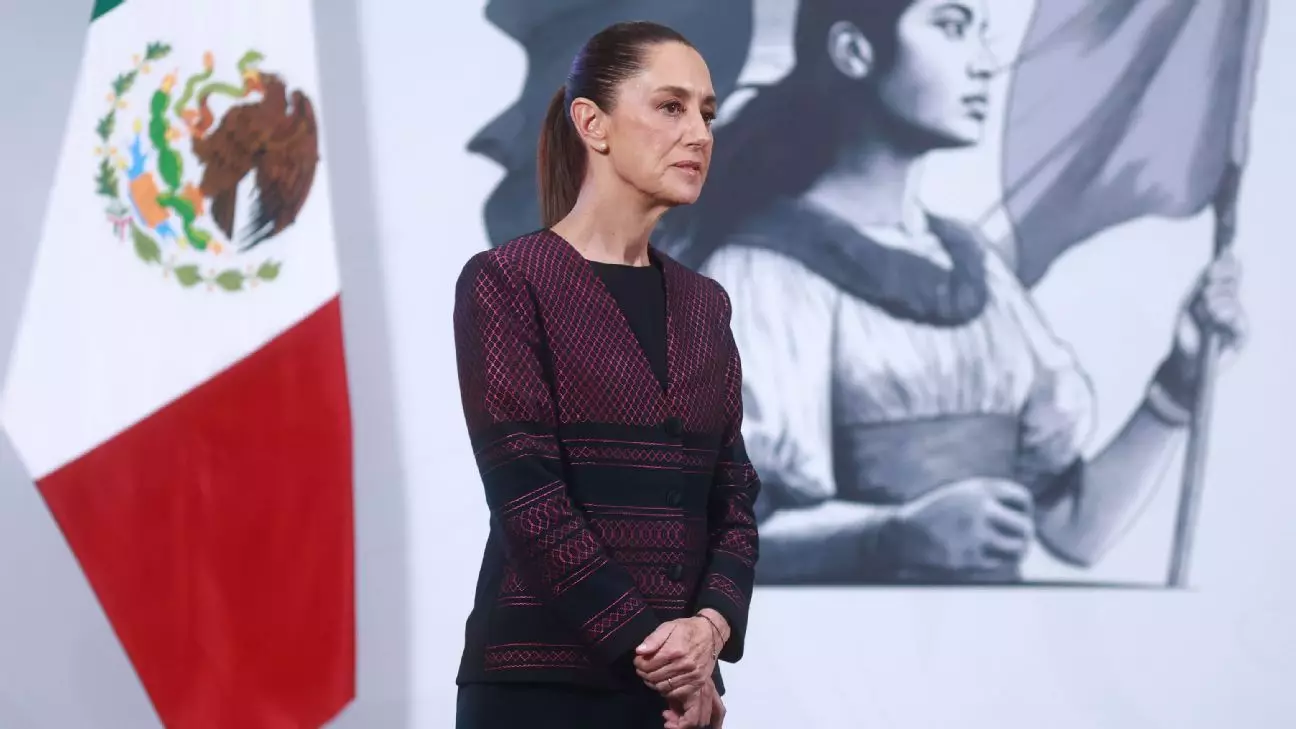The intersection of sports and politics often creates a palpable tension, as evidenced by the recent remarks made by Mexican President Claudia Sheinbaum regarding U.S. immigration enforcement during the Gold Cup soccer match in Los Angeles. With Mexico set to take on the Dominican Republic, the anticipation of the game has been overshadowed by fears surrounding potential immigration raids targeting attendees. The implications of such actions not only pose serious personal risks for undocumented individuals but also raise major ethical questions about the role of federal authorities at public gatherings that should primarily celebrate community and athleticism.
The Shadow of Past Policies
Sheinbaum’s comments echo a sentiment felt across numerous cities, where recent immigration raids have drawn protests and marked a disturbing continuation of heightened enforcement strategies reminiscent of the Trump administration. The atmosphere of fear that these policies cultivate is counterproductive to community cohesion, particularly at events designed to unify diverse groups of people. Sporting events, especially those featuring international teams, should serve as a beacon of inclusivity rather than a battleground for immigration enforcement.
Game Day: Security or Fearmongering?
When U.S. Customs and Border Protection (CBP) tweeted that they would be “suited and booted” for the matches, the statement waned in its jocular nature amidst the serious implications of their presence. The decision to heighten security at sports events, while often justified under the guise of safety, can veer into the territory of intimidation when entangled with immigration enforcement practices. The idea that someone’s enjoyment of a sport can be disrupted by the lurking possibility of detention is emblematic of the broader challenges facing marginalized communities in America. The CPB’s insistence on maintaining safety feels increasingly hollow when juxtaposed against an aggressive approach to undocumented individuals.
Mexican Unity and Resilience
Sheinbaum’s reassurance to fans about the protocols established by Mexican consulates in the U.S. suggests an understanding of the climate of anxiety facing many in the Latino community. Her acknowledgment of demonstrators waving Mexican flags as “potential provocations” further complicates the narrative. The emblem of the flag, often heralded as a symbol of pride, is viewed with suspicion, highlighting a misunderstanding between cultural expression and political dissent. In this volatile climate, it is crucial to remember that migrants are not instigators of conflict; rather, they are often the backbone of labor in the U.S., contributing to the economy while seeking a better life for their families.
Sport as a Reflection of Society
Ultimately, the Gold Cup match serves as more than just a game; it is a lens through which we can examine the deeper societal issues surrounding immigration and human rights. While Sheinbaum calls for empathy and understanding, we must recognize that this is a critical moment for unity. Sporting events are about collective joy, but they should not ignore the prevailing societal injustices. The push for compassion and respect for all attendees is essential for fostering an environment where everyone can celebrate without fear of repercussions.


Leave a Reply